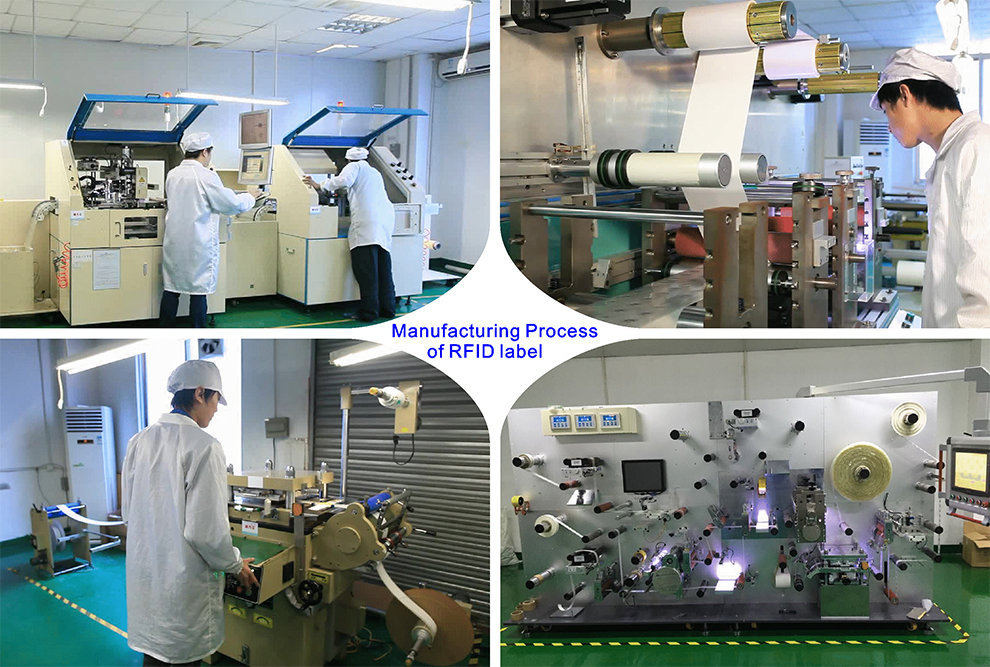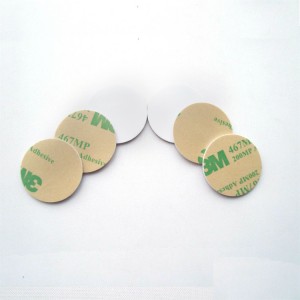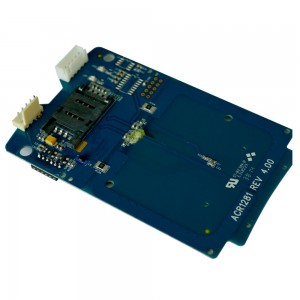RFID UHF Inlay Monza 4QT
UHF RFID inlay not only enhances operational efficiency but also improves accuracy across multiple applications, including supply chain management, asset tracking, and retail.
This guide delves deep into UHF RFID inlays, focusing on their benefits, technical specifications, applications, and how they can elevate your business operations. The Impinj Monza 4QT tag, a standout in the RFID market, exemplifies the advanced technology available today.
Benefits of UHF RFID Inlay
Efficient Inventory Management
UHF RFID inlays facilitate seamless inventory tracking, making it easier for businesses to monitor stock levels and minimize losses. Notably, the Monza 4QT offers omnidirectional reading capabilities, enabling tagged items to be detected from virtually any angle. With a read range of up to 4 meters, businesses can efficiently manage their inventory without the need for manual scanning.
Enhanced Data Security
Security is a significant concern in the realm of data management. UHF RFID inlays, particularly those featuring Impinj QT technology, allow for sophisticated data protection. Organizations can create private data profiles and utilize short-range capabilities to limit access, ensuring sensitive information remains secure.
Streamlined Operations
UHF RFID inlays automate various processes, reducing the need for manual labor and enhancing operational efficiency. With precise tracking of items, businesses can optimize workflows, thus saving time and reducing operational costs.
Key Features of UHF RFID Inlay
Advanced Chip Technology
At the heart of many UHF RFID inlays lies advanced chip technology such as the Impinj Monza 4QT. This chip provides a larger memory capacity, accommodating extensive data requirements for diverse use cases. With a memory configuration optimized for applications in manufacturing and supply chain management, users can expect reliable performance.
Versatile Applications
The design of UHF RFID inlays allows for extensive applicability in sectors such as logistics, automotive, healthcare, and apparel. Whether tracking metallic containers or automotive components, UHF RFID inlays ensure reliable data capture and management.
Durability and Temperature Resistance
UHF RFID inlays are designed to withstand harsh environments. For instance, the Monza 4QT supports an operational temperature range of -40 to 85°C and offers excellent moisture resistance, ensuring consistent performance in various conditions.
Understanding UHF RFID Inlay Technology
What is UHF?
UHF refers to the range of radio frequencies from 300 MHz to 3 GHz. Specifically, in the context of RFID, UHF operates optimally between 860 to 960 MHz. This frequency range allows for greater reading distances and faster data transmission, making UHF RFID a preferred choice for many applications.
Components of RFID Inlay
The typical structure of an RFID inlay includes:
- Antenna: Captures and transmits radio waves.
- Chip: Stores the data, such as a unique identifier for each tag.
- Substrate: Provides the foundation on which the antenna and chip are mounted, often made from durable materials like PET.
Technical Specifications of UHF RFID Inlay
| Feature | Specification |
|---|---|
| Chip Type | Impinj Monza 4QT |
| Frequency Range | 860-960 MHz |
| Read Range | Up to 4 meters |
| Memory | Configurable for larger data storage |
| Operating Temperature | -40 to 85°C |
| Storage Temperature | -40 to 120°C |
| Substrate Type | PET / Custom options |
| Write Cycles | 100,000 |
| Packing | 500 pcs per roll (76.2mm core) |
| Antenna Process | Aluminum etch (AL 10μm) |
Environmental Impact of RFID UHF Inlay
Sustainable Alternatives
With growing awareness of environmental sustainability, many manufacturers are adopting eco-friendly materials for RFID inlays. The use of recyclable substrates reduces the carbon footprint, making UHF RFID inlays a sustainable choice for businesses focused on minimizing environmental impact.
Lifecycle Considerations
RFID chips are designed to last, which means fewer replacements and reduced waste. Many inlays are engineered to endure various environmental conditions, offering longevity that aligns with sustainability goals.
Chip Option
|
HF ISO14443A |
MIFARE Classic® 1K, MIFARE Classic® 4K |
| MIFARE® Mini | |
| MIFARE Ultralight®, MIFARE Ultralight® EV1, MIFARE Ultralight® C | |
| NTAG213 / NTAG215 / NTAG216 | |
| MIFARE ® DESFire® EV1 (2K/4K/8K) | |
| MIFARE® DESFire® EV2 (2K/4K/8K) | |
| MIFARE Plus® (2K/4K) | |
| Topaz 512 | |
|
HF ISO15693 |
ICODE SLIX, ICODE SLI-S |
|
UHF EPC-G2 |
Alien H3, Monza 4D, 4E, 4QT, Monza R6, etc |















